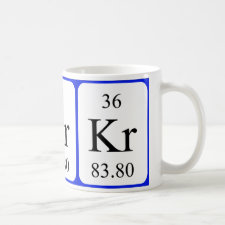
Authors: Lakka A, Tsakalof A
Article Title: Molecular Imprinting of Tri-O-Acetyladenosine for the Synthetic Imitation of an ATP-Binding Cleft in Protein Kinases.
Publication date: 2013
Journal: ChemPlusChem
Volume: 78
Issue: (8)
Page numbers: 808-815.
DOI: 10.1002/cplu.201300101
Abstract: A number of diseases, including cancer, diabetes, and inflammation, are linked to deregulation of cell signaling pathways controlled by protein kinases. Inhibition of the kinases involved can interrupt aberrant signaling and have a specific therapeutic effect. Protein kinases are recognized as validated therapeutic targets for the treatment of a number of diseases and there are considerable efforts to discover new kinase inhibitors suitable for drug development. The main goal of this study was to fabricate the synthetic imitations of the adenosine triphosphate (ATP) binding cleft in protein kinases and thus produce polymers suitable for screening and isolation of new protein kinase ATP-mimetic inhibitors from different sources. Such polymers were created by the imprinting of tri-O-acetyladenosine in acrylic polymer matrix with the use of methacrylic acid (MAA) or 3-vinylbenzoic acid (VBA) as a functional monomer and ethylene glycol dimethacrylate as a cross-linking agent. The imprints prepared with the use of VBA demonstrate substantially better binding efficiency than that with MAA and particularly high affinity to the initial template (Kd as low as 1.2 μM), sufficient concentration of binding sites N (up to 32 μmol g-1), and pronounced specificity (imprinting factor up to 11). Under flow conditions, the fabricated polymers also demonstrate high capacity and template affinity. The produced imprints reproduce spatially noncovalent interactions present in the ATP binding site of protein kinases and can be anticipated as approximate synthetic imitations of the binding cleft
Template and target information: tri-O-acetyladenosine
Author keywords: ATP imprinting, drug discovery, molecular imprinting, protein kinase inhibitors, synthetic receptors



Join the Society for Molecular Imprinting

New items RSS feed
Sign-up for e-mail updates:
Choose between receiving an occasional newsletter or more frequent e-mail alerts.
Click here to go to the sign-up page.
Is your name elemental or peptidic? Enter your name and find out by clicking either of the buttons below!
Other products you may like:
 MIPdatabase
MIPdatabase









